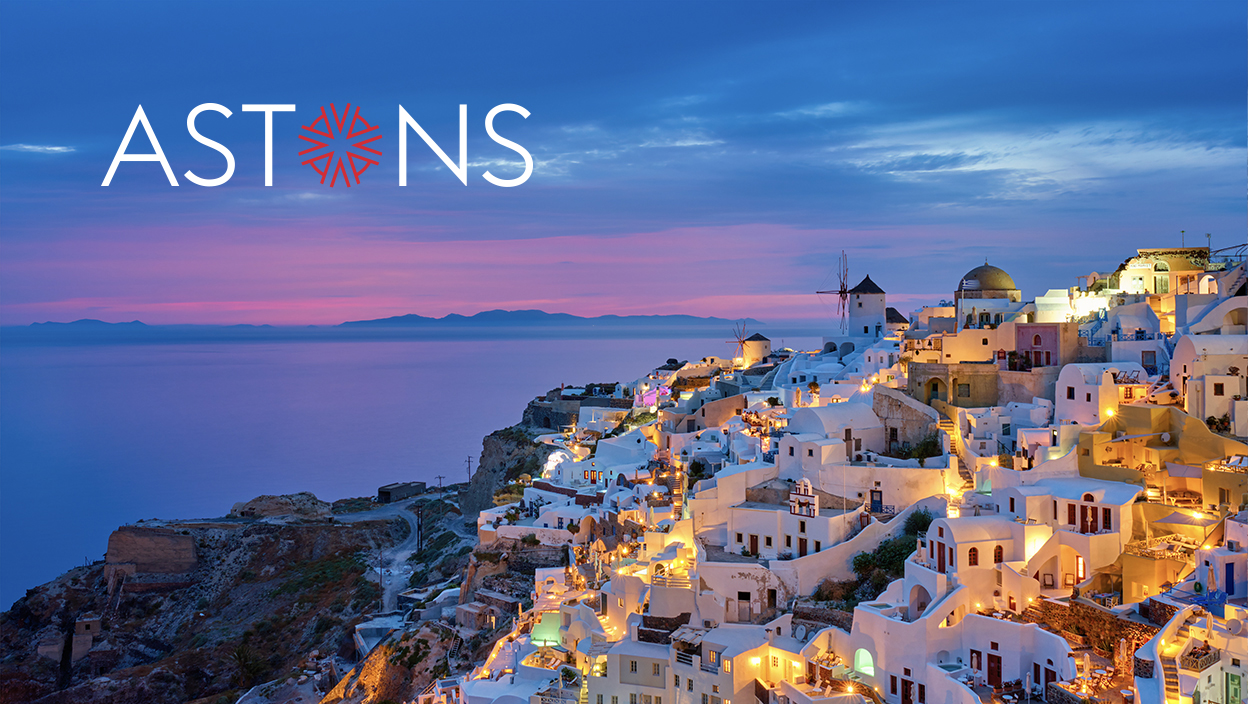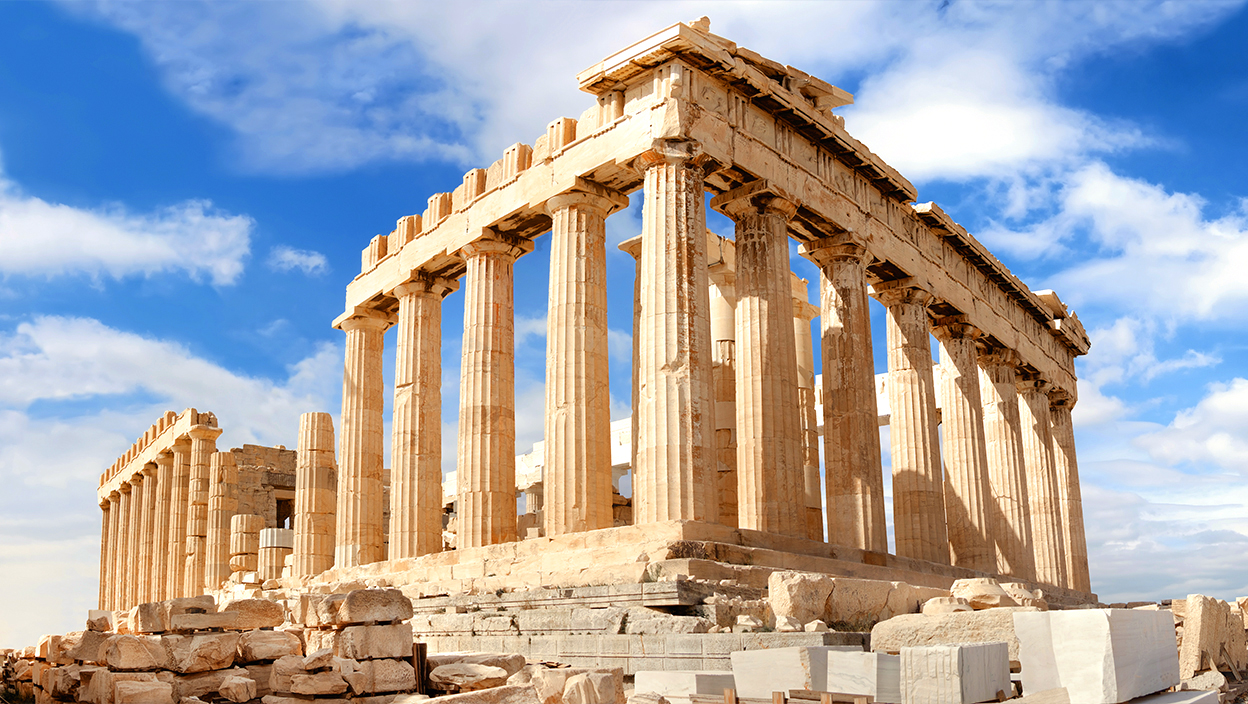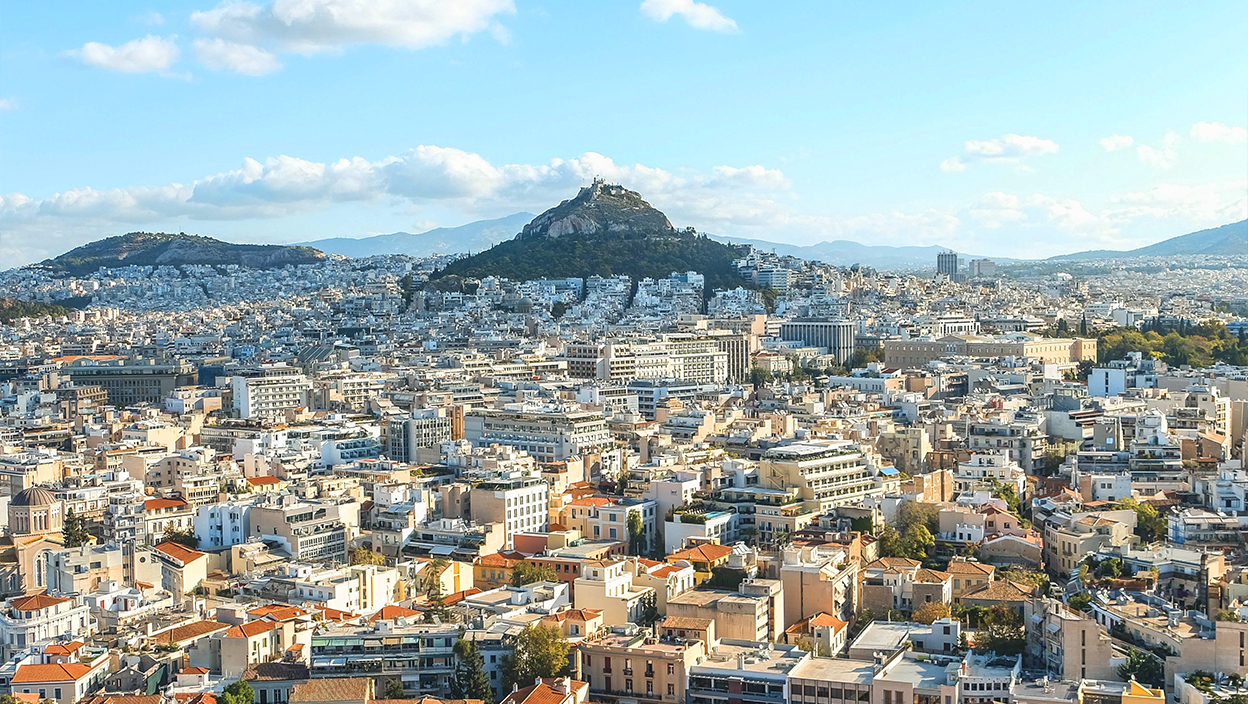The Greek Golden Visa has been garnering greater attention among American high-net-worth individuals (HNWIs) as they seek to establish a solid “Plan B” in Europe, leverage the power of portfolio diversification, and capitalize on Greece’s impressive rental ROI capacity.
As inquiries from Americans looking to settle in Greece have grown 40% Y-o-Y between the springs of 2021 and 2022, US investors are increasingly leveraging the Greek Golden Visa as a means to gain both residency and hedge against potential political and economic turbulence by setting up a foothold in one of the world’s most fascinating countries.
Additionally, as Greece’s residency by investment program does not require any physical residency, US investors find the program’s investment options as a superior way to diversify their investment portfolios.
Whether US-based or global, investors seeking alternative residency, portfolio diversification, or the highly-coveted EU Plan B, the Greece Golden Visa has an investment channel for everyone.
Greece’s residency by investment program
The Greek government introduced the Golden Visa program in 2013 as a financial lever to help offset the economic downward spiral and subsequent mounting debt the nation had been experiencing.
The program would prove remarkably popular, having approved nearly 10,000 investors during its ten-year reign.
The Golden Visa’s premise is relatively straightforward: third-country (non-EU or EEA) investors with a clean criminal record and qualifying liquid investment in Greece’s economy through an approved investment category can obtain a five-year residency permit.
The visa is renewable as long as investors maintain their investment in the country, and they are even allowed to switch their investments from one asset to another or to an entirely different category within some conditions – such as informing the government and continuing to meet the minimum investment threshold corresponding to their new asset regulations.
Investors can add their spouse, dependent children below the age of 21, and dependent parents to the application. Considering that the average family size for Golden Visa applications was just above three people per application, adding the entire family proved a significant draw.
American applications, in particular, have an above-average family composition of 3.3 applicants, ranking US family-oriented investors Greece’s third most prominent group.
The Golden Visa does not require holders to reside in Greece to maintain their residence, as it is connected directly to their investment, making it a great contingency plan. However, those who choose to live in Greece can apply for citizenship after seven years.
A year of change
Like its Portuguese counterpart, the Greek Golden Visa saw a massive change in its investment criteria during 2023.
Greece doubled the minimum investment requirement for real estate from €250,000 to €500,000 in select areas, including:
- Athens
- Thessaloniki
- Santorini
- Mykonos
- Vari
While the real estate minimum investment threshold remains steady at €250,000 in the vast majority of Greece, doubling the minimum of the most popular investment category within the most popular investment destinations in the country proved a significant modification to the program.
Before the changes, nearly half [41%] of all real estate-related Golden Visa applications were focused on properties in Athens, highlighting the centralization of investor interests.
Investors rushed to send in their applications before changes were officially implemented in October 2023, leading to one of the Golden Visa’s highest annual application numbers since its establishment, and it may yet break more records come December.
For the first time since the COVID pandemic, Greece had accumulated a significant backlog of applications (nearly 8,000 pending), and the government took measures to ensure it cuts it down quickly to return to the average processing time of three months.
The changes are now effective, and those looking to invest in real estate within the price-hike-affected areas will have to do so under the new €500,000 minimum.
The government argued that the increased investment requirement made financial and economic sense, considering the massive housing market growth, global inflation, and high demand.
By leaving most of the country’s price point at €250,000, the government has adeptly modified the Golden Visa to maintain its economic relevance while ensuring it is still open to investors with different wealth levels and investment interests.
Greece’s seven investment options
One factoid that many may not know is that Greece’s Golden Visa has seven different investment options – the most of any residency by investment program.
While the real estate investment category has long been the most popular among foreign investors, the Golden Visa’s vast array of investment channels gives American investors greater investment flexibility.
The seven investment channels under Greece’s Golden Visa are:
- Purchasing Greek real estate for €250,000 (€500,000 in specific municipalities)
- Signing a 10-year lease agreement with a hotel or tourist establishment worth €250,000
- Investing €400,000 in an alternative investment fund focused on Greek immovable property
- Purchasing €400,000 worth of Greek government bonds with a minimum three-year maturity through a Greek credit institution
- Acquiring €400,000 in shares during capital increases or bonds traded on Greek-regulated markets
- Investing €400,000 in a mutual fund dedicated to Greek shares, corporate bonds, and government bonds
- Committing €800,000 to corporate or government bonds traded on Greek-regulated markets or trading mechanisms
How US HNWIs can leverage Greece’s Golden Visa investment options
The variety of investment options in Greece opens the door for US HNWIs to obtain a residency permit in one of the EU’s most significant members and one of the world’s most fascinating places through an investment that resonates with their overall objectives.
Since US citizens have to deal with citizenship-based taxation, it is imperative to understand the different investment options and how they would fit into their investment portfolio.
The idea is to choose the investment with the best risk-to-profit margin according to each person’s preferences while being cognizant of the longevity of the Golden Visa’s validity – US investors need to weigh the risk and profit margins in accordance with future economic trends to maintain (or even enhance) their portfolio while keeping hold of their residency permit.
To understand each investment option, we will need to take a closer look at each one:
Greek Golden Visa real estate
As mentioned above, this is the most popular investment option under the Golden Visa. Applicants are free to choose any real estate from an open market, taking into consideration the minimum investment threshold if they are investing in Thessaloniki, Athens, Vari, Mykonos, or Santorini.
The price hike opens up the possibility for US investors to take advantage of housing market booms in secondary investment locations – those that were trailing Athens and Thessaloniki but were also making up ground.
The city of Halkidiki (or Chalkidiki), next to Thessaloniki, is a prime example. A bustling city on the Aegean with massive real estate projects primed for arbitrage gain, the city is set to become a favorite investment destination under the Golden Visa. Halkidiki even offers an overall higher rental yield than the popular Thessaloniki, making it an excellent investment location.
The island of Crete houses two of Greece’s largest cities – Heraklion and Chania – and is another excellent option. The Bank of Greece highlighted the dynamic nature of the housing market on the island, as property prices grew at an impressive Y-o-Y rate of 7.2 in 2020 – making Crete a prime candidate for investors looking for long-term arbitrage gains.
Paros is an excellent alternative for Mykonos and Santorini, as it offers the same level of Aegean enchantment but at a lower price. It also has an average rental yield of 7.1% – an impressive rate for property ROI.
The point is that Greece’s massive housing market – with its status as one of the world’s most popular tourist destinations – will continue offering investors abundant profitable real estate investment opportunities. Investors can rent the property themselves or through an agency such as Airbnb, taking advantage of the year-round tourism in Greece to nab a higher profit margin.
Signing a lease with a hospitality establishment
The second option allows investors to work with global hotel brands and tourism establishments. This solution is simple and quick but lacks a solid ROI structure.
Leasing won’t lead to ownership, so investors need to recoup more than their lease value to make a profit.
This means investors need to find an investment opportunity positioned to earn more than 10% in ROI, which is possible. Considering issues such as taxes and potential purchasing power declines, investors must also be wary of what option they choose and how much money it will make them.
The good news is that there are some high-paying investment options out there, even reaching around 20% – bearing in mind that there is no ownership at the end of the leasing period, so most investors may be better off buying a property instead.
The Lease option can be leveraged for a quick hit of ROI before switching to another asset class if a suitable opportunity arises. Still, US investors must look into how their ROI will be taxed, as some establishments may be considered PFICs while others may incur capital gains taxes.
Investment funds
Much like Portugal’s Golden Visa, Greece has an investment fund option. However, Greece has two types of fund categories.
Under the first category, Greece requires applicants to invest in funds focusing solely on property development.
The fund is free to invest in commercial, industrial, or residential property, opening the door to different risk and ROI levels.
American investors were the driving force of the real estate fund option under the Portuguese Golden Visa. As the Greek housing market is positioned to shift in the same direction – thanks to the new Golden Visa regulations – the investment fund category may prove profitable due to its low entrance threshold of €400,000.
The second option focuses on funds that invest exclusively in shares, corporate bonds, or Greek government bonds. The plethora of assets available to these bonds offer greater flexibility in terms of ROI and risk, and they are pure investment tools that US applicants can benefit from.
It is important to note that a fund doesn’t necessarily have to be in Greece but must invest in Greek assets. Investors not wanting to deal with foreign income issues can invest with domestic fund managers focusing on Greek assets.
Government bonds
Government bond investments are popular because they are safe. Sure, they boast lower ROIs, but they offer one of the best and most secure ways to diversify one’s wealth while ensuring their money is safe within the Greek government’s treasury.
The government bonds option may be the best choice for investors who want longevity, safety, and an easy investment process.
Shares and bonds
A €400,000 investment in corporate shares or bonds traded on Greek-regulated markets is another exciting prospect for US investors looking to diversify their wealth portfolio through shrewd investments abroad.
Proper due diligence and the help of a seasoned advisor are an accepted requisite, but this option may provide the highest ROI rate among the available investment options – albeit with the highest risk level as well.
This is also a great option for US entrepreneurs who want to open a business in Greece but do not want to be restricted by a work permit’s physical presence requirement, as a Golden Visa bypasses it completely.
Traded corporate and government bonds
This option has the highest price point of €800,000 and hasn’t been popular among Golden Visa applicants historically, but it does provide a safe diversification strategy.
To qualify for this investment channel, a corporate or government bond must be actively traded on markets monitored and overseen by regulatory bodies in Greece. This ensures that the investments meet specific financial and regulatory standards, adding a level of security to the option.
Additional advantages to Greek residency
There are a multitude of additional advantages that come with Greek residency, such as:
- EU Access – As Greece is part of the Schengen Area, its residents can access the Schengen Zone without needing a visa.
- No Physical Residence – Golden Visa investors are not required to reside in Greece to maintain their residency permit, as residency is linked directly to their investment.
- Top-Tier Healthcare– Greece has one of the world’s best healthcare systems. The country offers state-funded and private healthcare, with the latter at a fraction of the cost in the US.
- Greek Lifestyle – Greece is one of the world’s most popular countries with tourists for a reason. The unique culture, historical significance, natural beauty, and distinctive islands offer an incredible experience not just for visitors, but also for residents too. Check out our guide to the Greek lifestyle.
- A Simple Process – The Greek Golden Visa has a streamlined process that only takes three months on average, making it one of the simplest ways to obtain EU residency.
- Non-Dom Tax (NDT) – Greece’s NDT allows new residents who invest €500,000 in Greek assets to pay income tax at a lump sum of just €100,000 a year, no matter their income level. They are also exempt from inheritance and gift tax.
Power brands: Greece + Astons
Greece has always held a particular ethos with the American public and with global HNWIs.
The country’s culture, food, history, natural scenery, and overall mythos have drawn Americans to its shores for decades, whether as tourists, residents, or investors.
The Golden Visa makes the entire process convenient, accessible, and easy for Americans, providing them with a robust way to diversify their wealth through investing in one of Europe’s fastest-growing markets.
Astons has been a licensed agent for the Greek Golden Visa from the program’s inception.
Our Athens office – led by local real estate market experts and investment migration specialists – has made Astons an industry leader for one of the European Union’s most coveted residency-by-investment programs.
To learn more about how the Greece Golden Visa can benefit you, your family, and your investment portfolio, schedule a free consultation with Tamara in the Astons Athens office.
Frequently Asked Questions
As Greece is a member of the European Union, the entry visa regulations for Greece are the same as for all EU member states.
Depending upon your nationality, of course, most countries are visa-exempt for 90-day stays in the EU.
However, soon all non-EU citizens and non-EU residents will need pre-approval prior to entering the European Union and Greece – regardless of what passport they possess.
The new visa entry regulations are targeted for implementation prior to the end of 2025, when the EU will be launching ETIAS, its new eVisa system.
The Greece Golden Visa will provide an exemption to the ETIAS requirement.
No, the Greek Golden Visa has no language requirements for either application approval or maintaining Greek residency.
The residency provided by the Greek Golden Visa is directly connected to the investment made by the individual – providing the program’s requirements for investment holds are maintained, the corresponding Greek residency is also maintained.
However, the residency acquired through the Greek Golden Visa can lead to citizenship, but the eligibility for citizenship could involve a language requirement – this is above and beyond the Greek Golden Visa program and is simply a future option for all legal residents of Greece.
It is true that some Golden Visa programs restrict investors to only approved projects of newly constructed residential homes in specific locations.
The lack of this element is what makes the Greek Golden Visa one of the most popular and sought-after EU residency programs.
Under the Greece Golden Visa, all real estate throughout Greece is eligible – providing that the property meets or exceeds the required minimum investment threshold for the area in which it is located.
The property can be move-in ready new construction or a 100-year old preservation project.
It can be residential or commercial real estate.
In fact, it can be for the investor’s personal use or to be used for rental income.
The investor is free to choose where they would like to invest and what they want to invest in – providing the property meets the required investment minimums.
As with any residency visa, the permanent residency gained via the Greece Golden Visa can lead to citizenship eligibility – but this is not guaranteed, nor is it an element of the residency by investment program.
The eligibility requirements for Greek citizenship are completely separate and distinct from those that govern the Greek Golden Visa program.
Simply being approved for residency and maintaining the Greek Golden Visa requirements will not satisfy the criteria for citizenship alone.
For example, there are no physical residency requirements for the Golden Visa, however, citizenship eligibility requires seven [7] years of continuous physical residency.
While it is entirely possible for Greek Golden Visa investors to become eligible for Greek – and thus EU – citizenship, this is a decision the investor needs to plan for and take additional steps to work towards.
This is one of the most common and best questions the experts at Astons are always asked.
While a significant percentage of Astons clients have been very successful with generating ROI by investing in rental properties in Athens, this does not mean that the real estate option is the best choice for every investor.
The multiple investment options provided by the Greek Golden Visa is unparalleled for EU programs, and is another reason why this program is one of the most sought-after EU residency routes in existence.
Astons has found that the real estate option is the most popular choice due to its ROI potential, but our experts examine the individual situation of every client to determine which program and investment options best suit the client’s wants, needs, goals, and demands.
Schedule a Free Consultation with Astons to better understand how you can fully leverage the world of investment migration solutions to its maximum benefit.




















